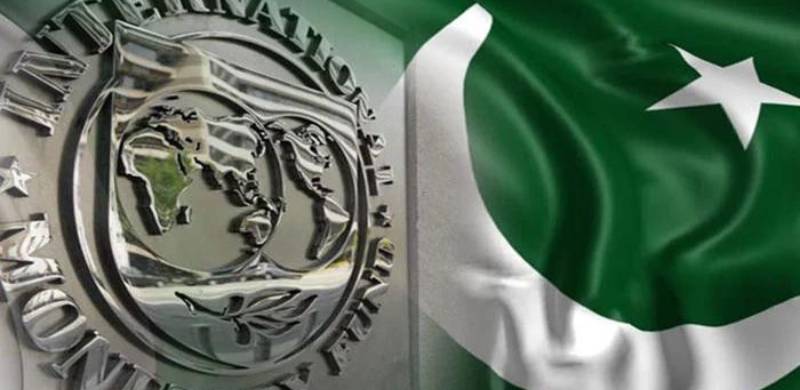
It was hoped that the release of the $1.17 billion loan from the International Monetary Fund (IMF) would help bolster Pakistan's crumbling economy; however, as the rupee continues its downward spiral, this was not the case.
Economist and former federal minister for finance Dr. Hafeez Pasha explained that while it was expected that the IMF loan would help raise the rupee and save the economy, it did not turn out that way, as the foreign exchange reserves did not go up, as the commitments made by other countries were not fulfilled. He also blamed the political crisis for contributing to the uncertainty in the market.
https://twitter.com/Riazhaq/status/1572443278037098498
He also said that stability would be a far reached dream until the reserves of the country reach the 'psychological mark' of $10 million.
https://twitter.com/Riazhaq/status/1572443383477534720
He said that all the calculations and budget recommendations made by the federal and provincial governments, as well as all the growth targets that were set were based on when the dollar was at Rs 186. Since it is now valued at Rs 238, everything will have to be redrafted and reconsidered.
https://twitter.com/Riazhaq/status/1572443499378741248
Pasha said that certainly the flood crisis had exacerbated things and he expected the IMF to help out as they have hinted towards doing so. He believes that the Asian Development Bank (ADB) and the European Union (EU) would also help out to a certain degree, but it remains to be seen if funds would be released by the IMF through its rapid transaction facility.
https://twitter.com/Riazhaq/status/1572443746381299712
He cautioned that Pakistan is not yet out of danger of defaulting, and said that $37 billion was needed by the end of the year to avert an economic crisis.
Economist and former federal minister for finance Dr. Hafeez Pasha explained that while it was expected that the IMF loan would help raise the rupee and save the economy, it did not turn out that way, as the foreign exchange reserves did not go up, as the commitments made by other countries were not fulfilled. He also blamed the political crisis for contributing to the uncertainty in the market.
https://twitter.com/Riazhaq/status/1572443278037098498
He also said that stability would be a far reached dream until the reserves of the country reach the 'psychological mark' of $10 million.
https://twitter.com/Riazhaq/status/1572443383477534720
He said that all the calculations and budget recommendations made by the federal and provincial governments, as well as all the growth targets that were set were based on when the dollar was at Rs 186. Since it is now valued at Rs 238, everything will have to be redrafted and reconsidered.
https://twitter.com/Riazhaq/status/1572443499378741248
Pasha said that certainly the flood crisis had exacerbated things and he expected the IMF to help out as they have hinted towards doing so. He believes that the Asian Development Bank (ADB) and the European Union (EU) would also help out to a certain degree, but it remains to be seen if funds would be released by the IMF through its rapid transaction facility.
https://twitter.com/Riazhaq/status/1572443746381299712
He cautioned that Pakistan is not yet out of danger of defaulting, and said that $37 billion was needed by the end of the year to avert an economic crisis.

